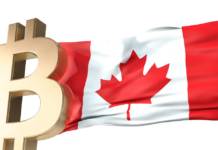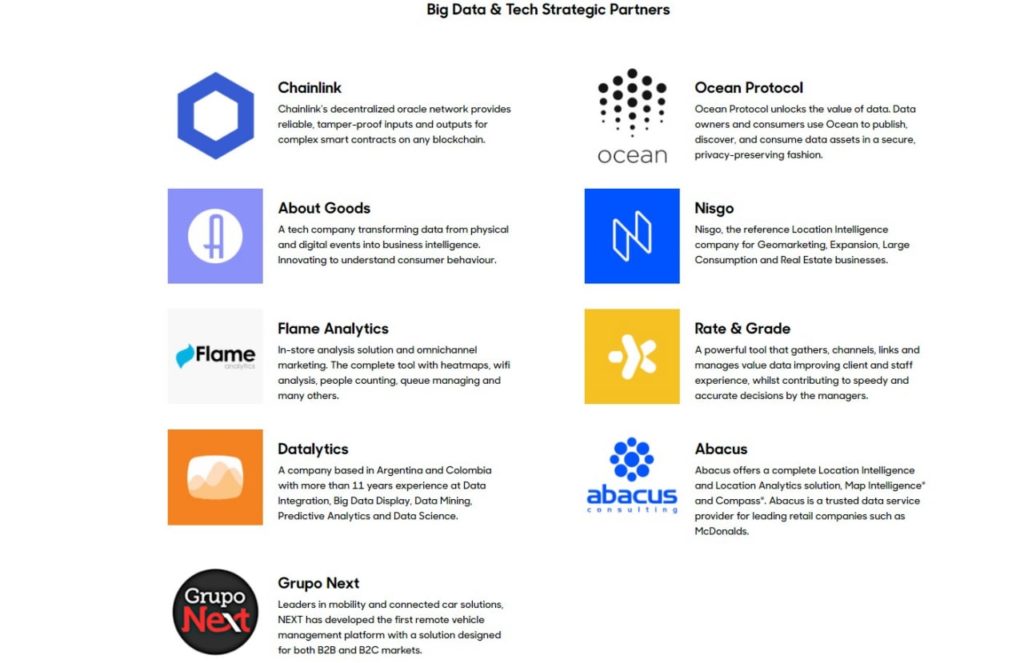GeoDB, the decentralized peer-to-peer data sharing ecosystem, aims to democratize the big data industry. It is trying to achieve this by using blockchain technology to build a trustful relationship between the data-generators and the data-sharing market. Basically, GeoDB is creating a decentralized data pool that will use a blockchain protocol. At one end of the protocol are the users who will generate data and will receive rewards for the same. On the other end of the protocol, the data buyers can have access to encrypted, verified, safe, and accurate data.
According to reports, by 2030, over 95% of business decisions will become data-driven. However, the existing big data industry is dealing with inefficiencies like data breach risks, security threats, and users not getting compensated for their data. Additionally, the data buyers are spending more than 80% of their time accessing, evaluating, purchasing, and formatting the data. Dealing with the challenges of such scale, the big data industry might end up facing growth retardation. This is where GeoDB comes into the picture as a platform where users can share their data in a secure manner and get compensated in return.
How Does GeoDB Enable This?
The traditional distributed ledger technology (DLT) suffers from some shortcomings like the high usage cost and lack of storage capabilities. That is why GeoDB utilizes a Hybrid DLT system.
- To ensure user anonymity, it uses a mix of federated DLT and public DLT.
- At the beginning of the platform, it uses total federation. Gradually, the set-up adds trusted members to the federation.
- The Geo-installed SDKs in the users’ smartphones direct the data from the platform participants in the system.
- The authorized DLT then works on data quality assurance, trustworthiness, and ownership. Once the data is verified, the data generator receives his compensation (GEO tokens).
- GeoDB Coin (GEO) acts as the fuel of the economy. While the data buyers can use it to make data purchases, the users can exchange GEO for discounts and coupons from the GeoDB partners.
This kind of set-up positions GeoDB as a leader in democratizing the big data industry, and that is how it culminated in some major partnerships and investments.
GEO’s journey into the DeFi world started with the GEO/ETH Uniswap pool going live in August 2020. Moreover, on March 12, 2021, GEO launched on Binance Smart Chain and PancakeSwap. Currently, the team is in talks with some of the leading exchanges to get the token listed.
Very Successful 2020
In 2020, GeoDB onboarded thousands of new investors and over a hundred thousand GeoCash users. Along with that, its community followership witnessed explosive growth. Here is what all happened in 2020:
- In 2020, GeoDB developed a non-profit decentralized global pandemic information platform, Aid Squad.
- In April 2020, GeoDB partnered with Credits, one of the fastest and most scalable blockchains. GeoDB is exploring the use of Credits technology in its solutions.
- On May 13, 2020, GeoCash 2.0 was released. GeoCash is a data collector app that allows users to earn rewards for generating data on their devices and sharing it with GeoDB. More than 250k users are already using the Geocash app and earning rewards across the globe for sharing their location data.
- In August 2020, the project started developing its DeFi mission and launched its first Uniswap pool.
- In September 2020, the team announced the GEO Liquidity Incentive Mechanism. This mechanism incentivizes GEO holders. This mechanism is popularly known as liquidity mining or yield farming.
- In November 2020, the team announced the upcoming token swap that would need users to swap from GeoCash testnet tokens to ERC-20 tradable $GEO tokens.
Furthermore, 2020 proved to be a great year for the GeoDB project and its community. Till now, over 7,000,000 GEOs have been rewarded across 120,000 user wallets.
Big Plans for 2021
Very soon, the team will announce a new bunch of development updates. These updates will push GeoDB towards true decentralization, more openness, and more automation. With that kind of establishment, GeoDB will edge closer to becoming one of the most valuable and efficient data exchange networks. Here are some of the major development areas where a lot of work is being poured in:
- Shortly, odinprotocol.io, the data oracle network of GeoDB, will be launched. This will deliver a decentralized peer-to-peer data sharing network and trading ecosystem, turning GeoDB into an ultimate data oracle. The project opened whitelisting in February 2021. It received a lot of interest from parties who want to potentially act as validators or auditors upon Odin’s launch. Currently, Geo to Odin swap (3:1) is going on.
#ODIN Open Data Interoperable Network https://t.co/86oXbJb3dJ
— Wallace Wallet ($GEO 🌐) ⚛ (@wallace_wallet) February 27, 2021
- The team will soon launch Volta, the health/running app. The users can track their workouts and share them on social networks.
- The next product in the pipeline is Geoscan, and it will be launching in France in March 2020. It allows users to scan their receipts, track their expenses, and receive rewards for sharing these images. According to the team, the product already has data buyers lined up.
What Else in 2021?
- Very soon, it will launch Geo Marketplace. Once the marketplace is launched, the data buyers will be able to pick and choose the data they want to buy using GEO tokens.
- Wawa! and PlugPark are some more exciting data apps being built.
- With the recent implementation of GEO on Binance Smart Chain (BSC), the platform’s users will be able to avoid the high gas fees of the Ethereum network.
- Furthermore, the team is working on launching new liquidity pools on PancakeSwap.
- The project is already enjoying strong community support of 120k+ users, and the count is growing rapidly. Moreover, the hard work of the 30+ member team with 18 developers has poised GeoDB as one of the leaders in the space.
Recent Partnerships
- In February 2021, GeoDB partnered with Chainlink and launched its Chainlink node. The data will be used to assess the foot traffic information for physical retail stores. These stores can then use this data to build apps for location-driven marketing, rewards, games, and more.
- GeoDB also partnered with Ocean Protocol earlier in February 2021. With this partnership, GeoDB marketplace will be using Ocean Protocol technology. Additionally, Ocean Protocol will receive a new source of verified data.
- It also partnered with Smartkey, the blockchain-based integration that aims to create future smart cities. The platform will use GeoDB to deliver car and mobility data to the data buyers.
GEO Token Price
At the time of press, the GEO token is trading close to $0.757 and is up 1.5% in the last 24 hours. Currently, its market cap is roughly $8.7 million. However, the pace at which product roll-outs and exchange listings are happening, GEO certainly is a low-cap gem.
Join us on Telegram to receive free trading signals.
For more cryptocurrency news, check out the Altcoin Buzz YouTube channel.




























